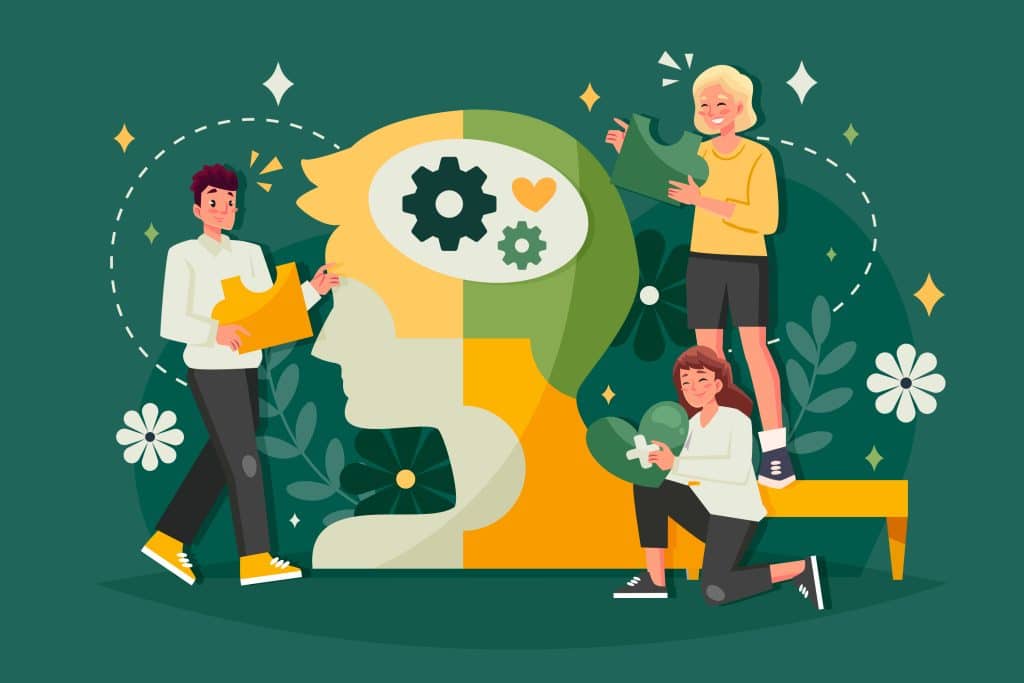Wellness Practices That Improve Mental Health
Ella Knight August 18, 2025
In today’s fast-paced world, mental health is no longer an afterthought—it’s at the center of conversations about well-being and productivity. People are increasingly turning to practical routines and evidence-based methods to build resilience, manage stress, and create balance in their lives. The growing awareness of emotional health has pushed wellness into everyday life, from workplaces to family homes, making it more accessible and essential than ever. This article explores wellness practices that improve mental health, focusing on the emerging trends shaping 2025 and providing actionable ways to integrate them into your daily routine.

Why Wellness Practices for Mental Health Matter
Mental health is deeply connected to overall well-being. Poor mental health affects productivity, relationships, creativity, and even physical health. On the other hand, intentional wellness practices provide tools to regulate emotions, boost mood, and strengthen resilience. The recent shift from treating mental health only during crises to proactively maintaining it through daily wellness practices marks one of the most important trends of this decade.
Key Wellness Practices That Improve Mental Health
1. Resistance Training for Mood and Brain Health
Exercise has long been linked to better mental health, but strength training is now in the spotlight. Beyond building physical endurance, resistance training promotes clarity of thought, supports memory, and reduces stress. A routine of two to three sessions a week—whether with weights, resistance bands, or bodyweight exercises—can be a powerful mental reset.
2. Mindful Digital Detox
Constant notifications and screen time fuel stress and distraction. Setting intentional breaks from technology helps restore focus and calm. Even simple practices—like screen-free mornings, no-device dinners, or an hour offline before bedtime—allow the brain to recharge. These digital boundaries are becoming essential in preserving mental clarity.
3. Nature Therapy and Outdoor Connection
Time in nature consistently lowers stress and improves mood. From structured activities like forest walks to casual moments in a garden or park, reconnecting with natural environments provides grounding and perspective. Many busy individuals now integrate micro-moments outdoors into their daily routines to reset energy and reduce anxiety.
4. Personalized Wellness Tools
Technology is evolving beyond fitness tracking to mental wellness support. Personalized wellness tools, whether in the form of guided reflections, meditation apps, or sleep monitors, are helping people stay consistent with self-care. When used with intention, these tools offer structure, accountability, and real-time feedback for managing mental health.
5. Restorative Sleep Practices
Sleep is a cornerstone of mental well-being, yet it’s often neglected. More people are recognizing the importance of quality rest, adopting practices like consistent sleep schedules, bedtime rituals, and screen-free evenings. Sleep optimization is no longer a luxury—it’s a priority for emotional regulation and focus.
6. Brain-Health and Mindfulness Retreats
Wellness retreats that focus on brain health and mindfulness are on the rise. These experiences go beyond relaxation, combining meditation, stress management, and mindful movement to help participants return with renewed clarity. Even short weekend retreats or at-home mindfulness challenges can replicate the benefits of these programs.
Practical Tips for Busy Lifestyles
Adopting wellness practices doesn’t have to be overwhelming. Here are practical ways to integrate them into daily life:
- Start small with exercise. Even 15 minutes of resistance training can lift mood.
- Use a morning ritual. Begin the day with journaling, stretching, or mindful breathing before checking your phone.
- Schedule tech-free blocks. Choose one or two windows daily to unplug.
- Bring nature inside. Indoor plants or natural light can boost mental well-being when outdoor time is limited.
- Build a sleep routine. Set a consistent bedtime and wake-up time, even on weekends.
- Track progress. Use wellness apps to monitor mood or habits, but avoid letting them create additional stress.
Benefits of Wellness Practices That Improve Mental Health
| Practice | Key Mental Health Benefit |
|---|---|
| Resistance training | Improves mood, supports brain clarity |
| Digital detox | Reduces anxiety, sharpens focus |
| Nature therapy | Restores energy, lowers stress |
| Personalized wellness tools | Adds structure and accountability |
| Sleep optimization | Enhances resilience, stabilizes emotions |
| Mindfulness retreats | Promotes long-term clarity and relaxation |
Looking Ahead: The Future of Mental Wellness
The conversation around mental health is expanding beyond therapy and treatment. In the coming years, we can expect:
- Integration into daily environments. Workplaces, schools, and homes will increasingly design spaces that support relaxation, focus, and emotional well-being.
- Technology with purpose. Wellness tools will become smarter, offering personalized prompts and reminders tailored to individual habits.
- Preventive approaches. Mental wellness will be treated like physical fitness—something that requires daily attention rather than occasional fixes.
- Blending traditions and innovation. Practices like mindfulness and yoga will continue to pair with cutting-edge methods, creating a holistic approach to resilience.
Conclusion
Wellness practices that improve mental health are not about adopting radical new routines but about consistency and balance. Resistance training, mindful digital use, nature therapy, quality sleep, and intentional tools all contribute to mental clarity and resilience. By making these practices part of everyday life, individuals can navigate stress more effectively, boost emotional strength, and thrive in today’s demanding world. Mental health is a journey, and these practices ensure it’s a sustainable one.
References
- Resistance Training: For Mood & Brain Benefits- https://www.pennmedicine.org
- Mindful Digital Detox: Press Pause for Clarity- https://www.frontiersin.org
- Nature Therapy: The Outdoors as Mental Reset- https://pacificcoastmh.com







